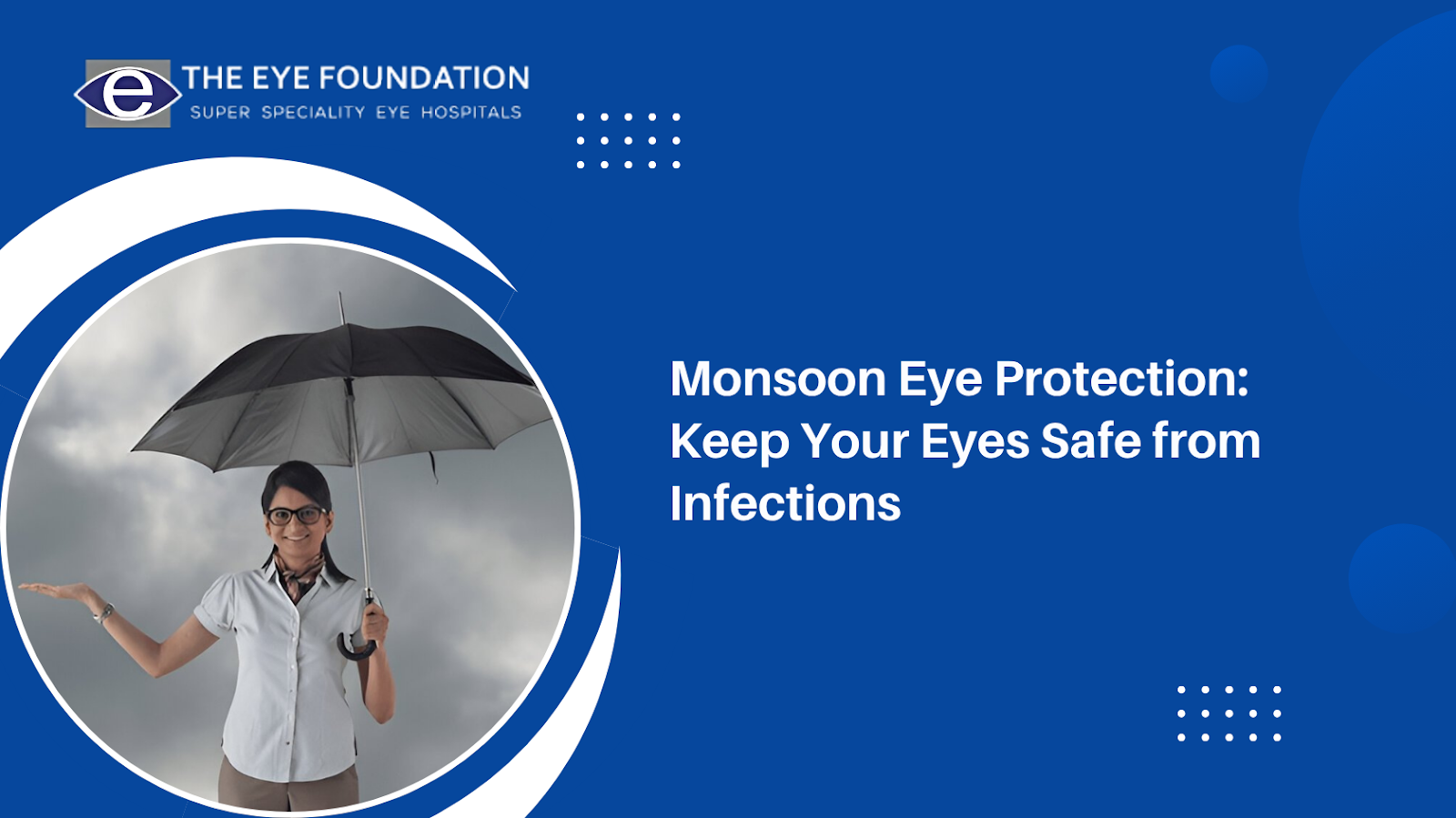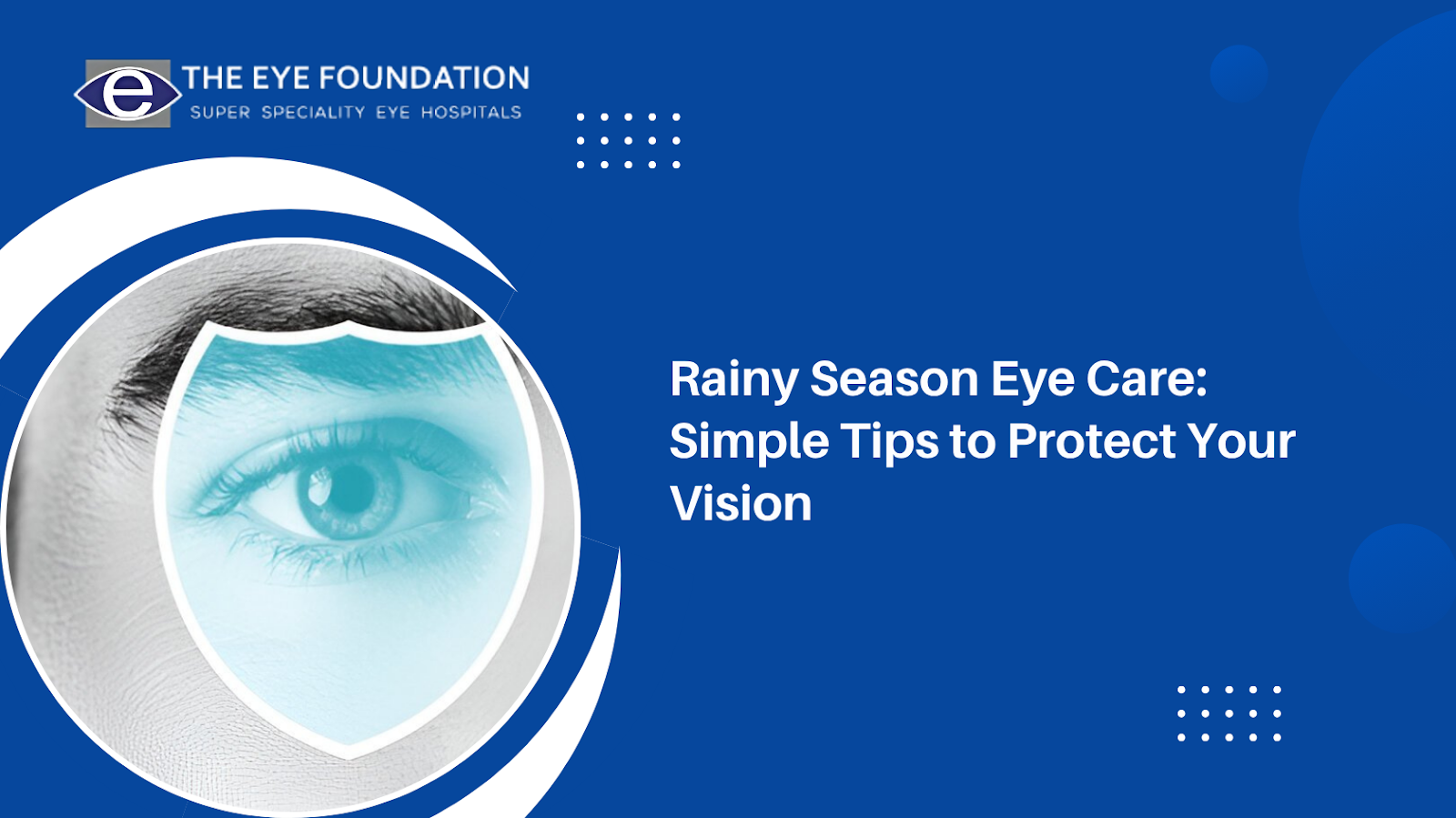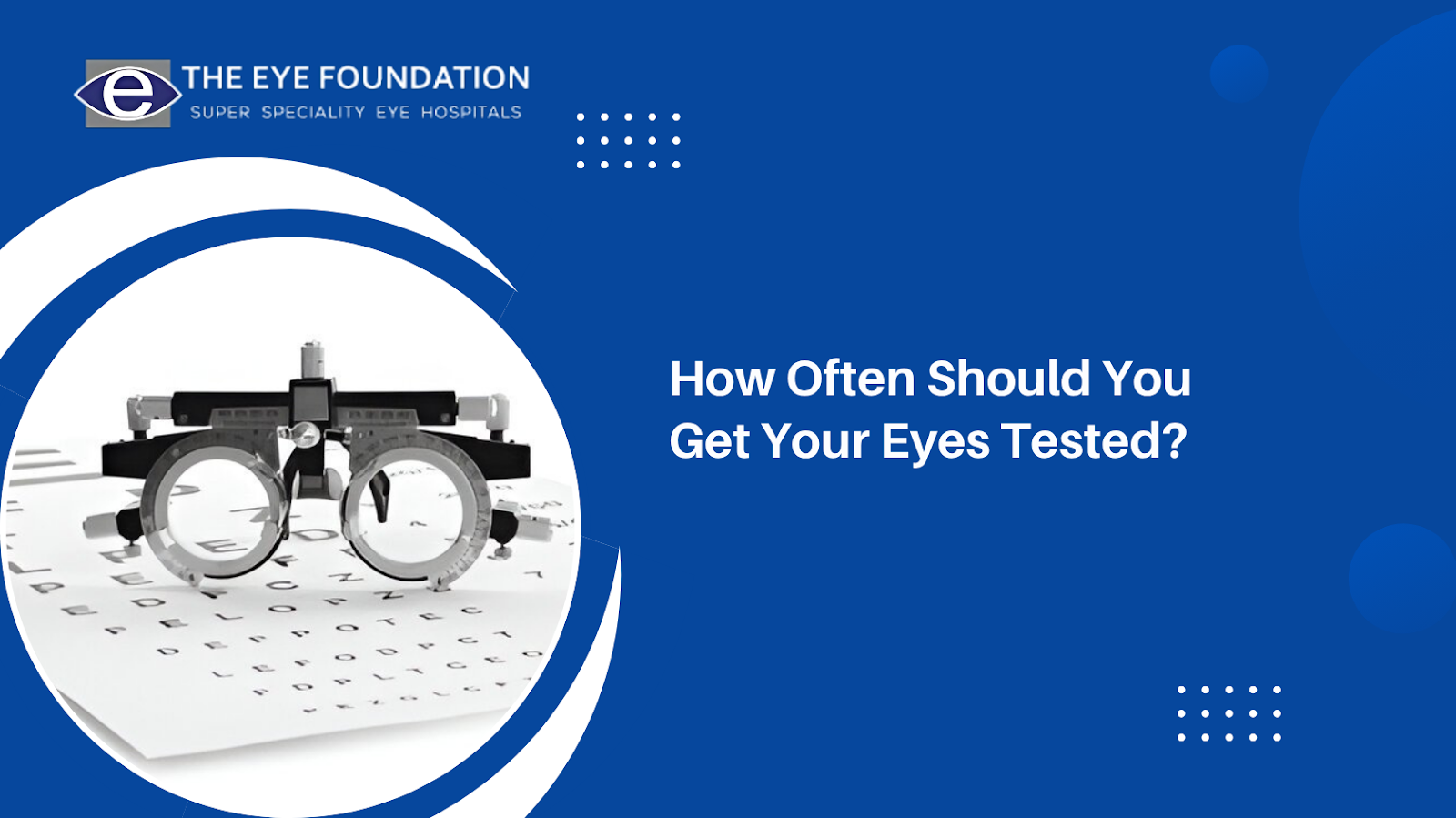While the monsoon rains may be a welcome relief from the intense heat, they also create an ideal breeding ground for infections. High levels of humidity, stagnant water, and bacterial cultures contribute to a relatively higher incidence of illnesses virus infections among other diseases one of which may be an eye infection. Monsoon eye care is one of the elements in healthcare that is often underestimated during the rainy season, with moisture and warmth providing an ideal environment for bacteria, fungi and viruses to congregate and proliferate - impacting the most sensitive part of the human body - the eyes.
This is a short blog to look at how the monsoon affects your eye health, common contributive elements of eye infections we may see during the rainy season, and simple but effective preventative measures to ensure your eyes remain healthy and clear throughout the rainy season.
The Effects of the Monsoon on Your Eyes
The air during the monsoon carries a lot of moisture, dust particles and microorganisms that can irritate your eyes. Infection can occur when using contaminated hands, towels or contact lenses after a visit to the rain or after drinking street water or rainwater, which increases the risk of infection. Eye specialists have reported a marked increase in conjunctivitis, stye, and corneal infection in the rainy season, of which some common causes include:
- Using rainwater to wash your face or eyes
- Wearing contact lenses for long hours in a humid climate
- Sharing towels, or cosmetics
- Rubbing your eyes with dirty hands
- Sudden fluctuations of temperatures (e.g. changing from the humid outdoor setting and entering the air-conditioned environment)
One may notice that their eyes are red and watery and itchy or are swollen. These may be the first signs that something is not right. Common Eye Issues During the Monsoon Season
Conjunctivitis (Pink Eye)
Conjunctivitis, the most prevalent infection during the monsoon season, is due to a viral or bacterial infection that results in inflammation of a thin membrane that covers the white of the eye. It can be easily transmitted by touch, contaminated water, and/or using the same object (e.g., towel). Common symptoms include redness, discharge, and itching.
Stye (Eyelid boil)
A stye is a painful lump on or near the eyelid edge as a result of a bacterial infection in the oil glands on the eyelid. Given the humidity during the monsoon, and potentially poor hygiene, styes are relatively common.
Corneal Ulcer
Minor infections left untreated can lead to corneal ulcers. Corneal ulcers are a serious condition where an open sore develops on the cornea and could cause permanent vision impairment.
Allergic Conjunctivitis
Allergic conjunctivitis can be triggered at this time of year by the pollen and dust floating around in the air during the monsoon. Allergic conjunctivitis is not contagious, but can cause extreme itching, tearing, and overall discomfort.
Fungal Infections
Moisture-loving fungi can lead to keratitis (infection of the cornea) if the contact lenses are not properly cleaned or disinfected, and/or stored properly.
Practical Tips for Eye Care this Monsoon Season
1. Keep Your Hands Clean
The simplest and most easily effective preventive step is to wash your hands frequently with soap and to avoid touching and/or rubbing your eyes unnecessarily
2. Avoid the Rain or Potential Rain Duration
The rainwater is not pure and will include possible pollutants, bacteria, and fungi. If your eyes are accidentally exposed to rainwater, simply rinse them with clean, filtered water and pat dry.
3.Keep Contact Lenses Clean
Proper care is needed for contact lenses in the monsoon. Always use a recommended solution to clean it; do not use tap water to clean contact lenses, and never wear contact lenses if you have redness or irritation.
4.Do Not Share Personal Items
Sharing towels, pillows, or eye makeup can easily spread infection. Use separate towels and pillows, or wash them often.
5.Protect Your Eyes in Outdoors
When riding a two-wheeler or when it is windy and raining, wear protective glasses outdoors to protect your eyes from dust, raindrops, and organisms from the air.
6.Do Not Use Eye Makeup during infections
If you have any evidence of an eye infection, stop using eye makeup until the infection is resolved. Don’t use eye makeup that is expired or contaminated.
7.Use Lubricating Eye Drops, if Needed
Humidity and air pollution can result in dry eyes, and sometimes even irritation. Talk to your eye specialist about appropriate lubricating eye drops to keep your eyes comfortable and functioning.
8.Eat Healthy
Eat food that is high in Vitamin A, omega-3 fatty acids, or high in antioxidants, it can help the health of your eyes and their ability to resist infection.
Examples: carrots, spinach, sweet potatoes, walnuts, and citrus.
Be Careful with Swimming Pools
- Do not swim in the monsoon unless absolutely necessary, as grappling with those eye infections tend to be seasonal and prevalent, especially during this season. Pools are often contaminated in the monsoon, and are likely to result in a fungal or bacterial eye infection.
- Visit an Eye Specialist without delay, it is important
- Visit an eye specialist immediately if you experience only one of the following:
- Severe eye pain or swelling
- Pus discharge or sticky eyes when waking
- Blurred or reduced vision
- Sensitivity to light
- If you did not make improvement over the subsequent 2–3 day but only practiced basic care.
These could be symptoms or signs of deeper infections like keratitis or corneal ulcers requiring urgent surgical intervention.
The monsoon season may be nourishing for your mind, but difficult for your eyes'. Adequate monsoon eye care will help prevent painful infections, and long-term eye infections. Stay mindful of early symptoms, hygiene protocols, and always protect your eyes from contaminated water and unclean environments. Healthy eyes mean seeing beauty in the rain without discomfort.
At The Eye Foundation, our experienced ocular surgeons offer comprehensive, advanced diagnostic, and treatment facilities for all types of eye conditions, even minor, to advanced surgical intervention.
If you or your family are experiencing eye redness, irritation, or discomfort this monsoon, don't wait.
Make an appointment today at The Eye Foundation, and keep your eyes safe, bright, and healthy this monsoon.





